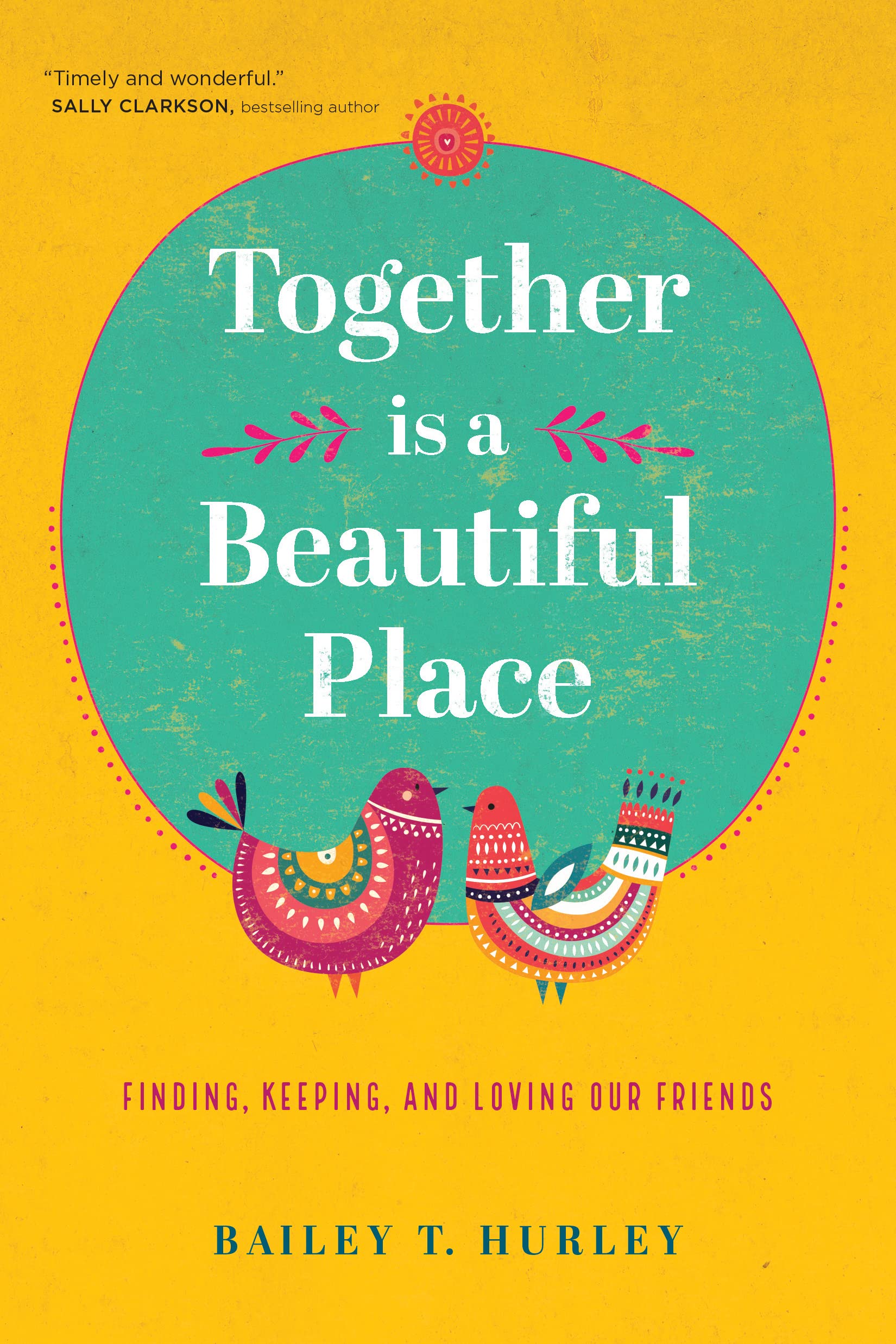Friendships begins in our heads. The stories we tell ourselves about who we are or whose we are, significantly impact how we live. What you think about who you are as a friend—according to the stories you replay in your head, significantly changes the way you approach friendships.
If you experience friendship conflict after friendship conflict, you may be telling yourself, It is not worth my time to pursue friends; they only end in disaster. If you have had unhealthy friendships, you may be telling yourself, Having close friends is not a safe endeavor. Opening up to other women was a mistake I will avoid making in the future. Or you may be stuck forcing expectations on new friends, bringing narratives to the friendship that aren’t necessarily bad but set us up for disappointment when people don’t act the way we expect them to.
As I pursued new friendships in Denver, I thought only one thing: These friendships should be like my hometown friendships. Anything different means they are not real friendships. I had allowed my narrative to control how I viewed the new friends, and it completely ruined my chances of building healthy, real friendships. And when I didn’t succeed at first, instead of “try, try, again,” I chose the narrative: I am a failure at making friends.
Identifying our negative narratives and replacing them with what God says is true about us and about community changes the friend-making experience. As Jon Acuff says in his book Soundtracks, “Take out a broken soundtrack. Ask, ‘What’s the opposite of this?’ And then write down the answer.” In other words, instead of believing absolutes like I will ALWAYS feel this way, Friendship will NEVER work out for me, or No one will EVER like me, we can try flipping the narrative.
So, instead of approaching a new friendship with They won’t like that I am a homebody because no one ever does, flip that: What if this is the person who loves all my quirks and wants to watch all of Friday Night Lights for the second time with me? When we twist our negative narratives into positives, we move our minds to expect genuine connection.
Of course, it’s not always so simple. We all know that thoughts like these cannot always be positively explained away: I just can’t stop thinking about how I messed up in the friendship. I just can’t stop feeling unwanted, even if friends invite me places. I just can’t stop believing that I am too much for my friends and no one will want to know the real me.
Take a moment and remember the last time you made a new friend. What fears were playing in your head? What thoughts kept you from being excited and open? Remember, what you believe about yourself privately is what you believe about yourself always. Becoming aware of your negative thoughts is the first step toward opening yourself up to new approaches for friendship. Let’s choose courage to dig deep and find the narratives that hold us back from authentic friendship.
Because there’s a way to fight them—and a way to win.
The enemy hates healthy, God-honoring friendships. He wants to destroy anything good that God creates, including the good relationships we have—and he does this by drawing us away from truth and down into those thought spirals that keep us from moving forward in our friendships.
When you feel like you’ve been stuck in a cycle of start-stop friendships, it isn’t because you have done something wrong or you are a flop at friendship. The enemy is waging war on your greatest gospel influence—your direct relationships.
But this is the truth of the gospel: You are worthy of friendship because Jesus, the King of kings, died so you could experience the best friendship of all, with the Creator of the universe. The true things God says about His people heal the lies we believe about ourselves. When we first choose to prioritize our relationship with God and believe what He says, we can experience uninhibited friendship—because we have left our friendship baggage at the cross.
The enemy doesn’t play fair. But we start to fight back when we let God reveal the enemy’s lies for what they are.
Several years ago, I was seeing a counselor regularly because I was having some deep friendship insecurity. When I was surrounded by a certain group of people at my church (who were older, cooler, and wiser), I felt so inadequate, and my insecurity stunted the relationships. I thought everyone didn’t like me (and when I stood in a corner quietly, I probably wasn’t winning anyone over). I could not get out of my head! I needed some serious healing that could only come from the ultimate Healer.
Being in God’s presence is where we can find the genuine love and acceptance God has for us. We find ourselves not only cognitively thinking that we are loved but actually experiencing love. When we stop to be with God, we remember that our core identity is beloved by God.
When we understand that we are beloved, we no longer have to chase after what we think our friends want from us. We can rest in who God says we are. We can slow down to be loved and even enjoy the process of growing in relationships with others.
Understanding our own belovedness is how we find the courage to invite people into a safe space to connect with us—whether our time together takes place in the parking lot of Target or the prayer room at church. We can be secure in the love we have received and give it away freely without the spiral of thoughts that hold us back.
Theologian and author Henri Nouwen understood the profound implications of this new identity as beloved:
When we claim and constantly reclaim the truth of being the chosen ones, we soon discover within ourselves a deep desire to reveal to others their own chosenness. Instead of making us feel that we are better, more precious or valuable than others, our awareness of being chosen opens our eyes to the chosenness of others. That is the great joy of being chosen: the discovery that others are chosen as well.
Or, to put it another way: Since “God so loved us, we also ought to love one another.”
When we understand our own belovedness and start to see the belovedness of others, spending time with God is no longer a box on our to-do list; it equips us for quality friendship. It’s not just “a thing.” It’s “the thing.”
Making room for God to overwhelm our hearts creates more room for us to see a friend situation with clarity and kindness—for ourselves and other people. And trusting God helps us give ourselves the grace and the opportunity to mess up. That’s right. Instead of believing we’ve already made too many mistakes to have friends, living in belovedness means we get to go in believing this is our chance to find our people. We get to step into each potential friendship anew, showing people who we really are and trusting they will appreciate what makes us unique.
This is what you get to do as the beloved of God: Go into new situations believing that God created you for friendship, that you are worthy of friendship, and that someone out there is looking for a friend just like you.



